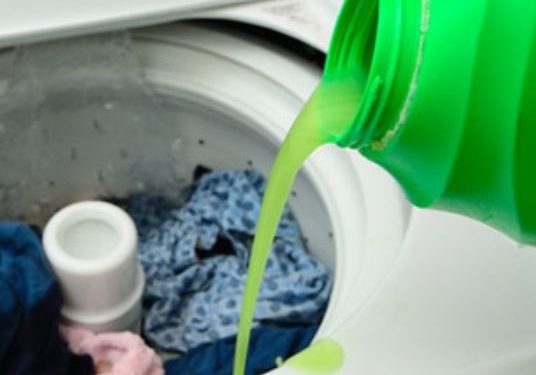New Delhi: Indian mothers believe powder detergents have superlative features, however brands can push this cohort to try liquid detergents by focusing on clothing protection claims, a consumer research by global market intelligence firm Mintel has revealed.
The field research was carried out among 3,100 Indian consumers aged 18 and above, in metro cities and tier 1, 2 and 3 cities of each of the four regions of India.
While Indian launches in fabric care mainly revolve around powders, liquid and bar soaps, newer formats like capsules/pods, fragrance beads and dryer sheets are slowly creating their own niche in the Indian market, as per Mintel.
As many as 59 per cent washing machine owners use liquid detergent, compared to 49 per cent in the total sample size, the research highlighted.
“The rising need for maintaining a healthy lifestyle has given a push to better quality detergents. This in turn, has also led to consumers veering towards laundry care fragrances that impact our mood and preferences. It’s not just about cleaning clothes anymore. It’s also about having fresh-smelling laundry that provides an uplifting experience and helps consumers build an emotional connection with the brand that delivers them,” says Manoj Arora, Managing Director and Chief Perfumer, Sacheerome.
Set up in the 1900s, Sacheerome is India’s leading manufacturer and supplier of fragrances and flavours.
Mintel expects the Indian fabric care category to grow from Rs 521 billion in 2022 to Rs 639 billion in 2025 and projects the burden of growth to rest on the shoulders of laundry detergents.
According to a report by Technavio, the global laundry care market is estimated to grow at a compounded annual growth rate (CAGR) of 4.28 per cent between 2022 and 2027, and the size of the market is forecast to increase by $23.85 billion.
In 2017, the market size was at $86.84 billion.
Ever since the onset of the Covid-19 pandemic, consumers have been more vigilant about the products they use, the sanitizers they buy and of course, way too particular about their houses and clothes smelling good.
The Mintel research states that 40 per cent Indians believe clothes should be washed immediately after every wear. This steadily rose to 45 per cent among those who sought antibacterial claims in their washing products.
India has largely been a consumer of handwashing where powder detergents is the largest category in the market. However, with improved cleaning practices and with consumers seeking more comfort in household work, a dynamic change in the fabric wash and care industry is taking place.
As a result, the penetration of washing machines is expected to go up in the future.
While both powders and liquids are used in washing machines, liquid detergents, too, are fast becoming a high-growth market –dominating the fabric care category primarily in tier-1 locations, including metro cities, across the country.
The pandemic has also helped brands premiumise their products, considering the growing demand.
It is in this context that FMCG companies are nowadays, offering long-lasting fragrance in fabric care to differentiate themselves from other brands.
For instance, Hindustan Unilever (HUL), in its annual report for financial year 2022-23, stated that as many as 19 of its brands entered the Rs 1,000-crore turnover club.
In fact, Surf Excel became the first home and personal care brand in India to clock over $1 billion annual sales in FY23. HUL’s home care liquids portfolio that includes fabric conditioners, liquid detergents and dishwashers, exceeded Rs 3,000 crore in annual turnover.
In order to improve the longevity and performance of clothes, brands are constantly redefining what fabric care truly means.
Sensory benefits are important to consumers when buying laundry products.
Fragrances used in both powder and liquid formats play a crucial role in providing an improved experience to the customer.
Innovative laundry products with fresh scents have started piquing consumer interest and influencing their choice of detergent.
Homegrown D2C brands such as Hapiso and Volt are innovating the space with products that stand out from the plethora of traditional formats, such as laundry pods.
With multi-sensory experiences becoming an important purchase driver, the advent of microencapsulation technology in fragrance delivery, for example, has put the focus on connecting the product with the consumer in an engaging way.
Sacheerome’s tech-based offering — Sach MaxiCaps — has allowed controlled time-release of fragrance, enabled by water or friction.
This system ensures significantly higher loading of fragrance and can be added to laundry detergents or fabric softeners to provide a feeling of freshness to clothes.
“Prime purchasers (i.e. Indian mothers) of the fabric care category believe powder detergents have superlative features… There is an opportunity to use fabric maintenance claims to premiumise consumers who are investing in premium clothing, and innovation with new formats can appeal to more evolved consumers,” said Tanya Rajani, Senior Analyst, Beauty & Personal Care, of Mintel India.
While a chunk of India’s laundry care market revolves around powder detergents and bar soaps, new formats like liquid detergents, capsules/pods and fragrance beads are slowly making inroads.
Due to rising consumer needs, concentrated liquid detergents, fabric conditioners and laundry pods are already disrupting the market.
Driven by ever-changing consumer demands, the fragrance industry, too, is delivering breakthrough innovation for a wide range of opportunities, including fragrance boosters, liquid detergents, fabric softeners and powder detergents.
As per Mintel, consumers who are aware and know of laundry pods are
millennials from a higher socioeconomic group and therefore have a greater awareness of new trends and innovations, which can be attributed to more tech ownership, digital exposure and upwardly mobile lifestyles.
“Hence, it’s not surprising that these consumers who are aware and know of laundry pods are also more inclined to try new laundry products that they have not tried before,” the study stated.
In the coming years, liquids hold good potential to premiumise and become more relevant in Indian households.
IANS






































